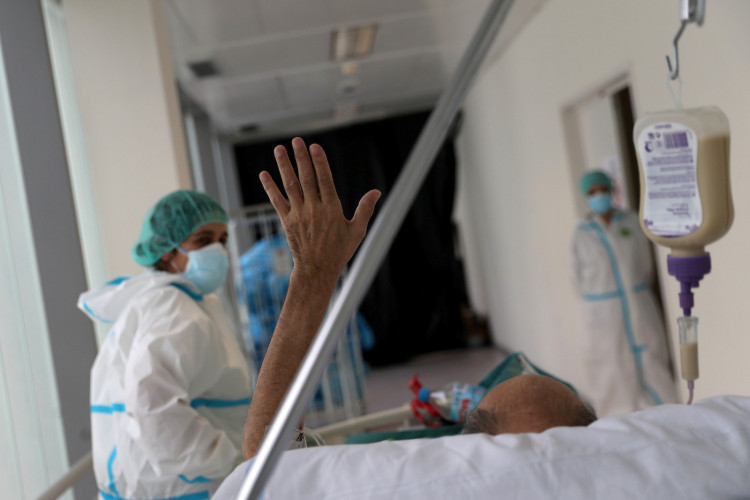As Europe battles a second wave of COVID-19 Ireland made a lockdown announcement, Spain crossed the 1 million mark and the UK reached a new daily record-high in confirmed infections.
Ireland Back In Lockdown
Following initial success in curbing coronavirus infections in the country, Ireland has issued a nationwide "stay at home" order - making it the first country in the European Union to return to a lockdown status.
Prime Minister Michael Martin said schools would remain open and essential workers allowed to travel.
Due to the re-introduced lockdown order, public transport will operate at 25% capacity only and people who violate a five-kilometer restriction issue would be penalized.
The second lockdown in Ireland is unlike the first - professional sport will be permitted but will be held indoors. Furthermore, the ban on indoor events between different households has been extended.
Martin said the re-imposed lockdown should help make Christmas worthwhile. "If we pull together over the next six weeks, we will have the opportunity to celebrate Christmas in a meaningful way," he said.
Ireland has logged more than 52,000 confirmed COVID-19 cases and more than 1,800 deaths.
Spain The Worst
Late Wednesday Spain became the first western Europe country to have 1 million confirmed coronavirus cases.
Just six weeks ago, Spain was the first in western Europe to cross the 500,000-mark in infections. The country is also the sixth hardest-hit in the world.
Experts said political tensions between the central government and Madrid's local politicians m0ay have affected efforts in reducing transmissions as the two sides have had disagreements in handling the coronavirus crisis.
Madrid is the center of the COVID-19 crisis in Spain but its regional president, Isabel Díaz Ayuso, challenged the lockdown that the national government imposed.
While other regions went on to voluntarily shut down restaurants and bars, the Madrid regional president questioned the epidemiological connection of this move to coronavirus transmissions.
UK Hits Daily Record-High Since Oct. 4
The UK on Wednesday logged 26,688 confirmed COVID-19 cases, marking the highest daily increase of infections in the country since Oct. 4.
Epidemiologist at the London School of Hygiene and Tropical Medicine, professor John Edmunds, said at least one "circuit breaker" lockdown will block a potential peak of daily coronavirus cases at "very severe numbers" on Christmas and New Year.
For Prime Minister Boris Johnson, a circuit breaker lockdown is not the solution. Instead, Johnson stood by his announcement of a three-tier lockdown system that he said wouldn't involve "all the psychological, emotional damage" that a one-time lockdown would bring.
Edmunds, on the other hand, argued that the UK at a point where the northern branch of the National Health Service would "be under strain in the next few weeks."
Millions of residents in the north of England will be placed under Tier Three of the British government's lockdown system this week.
As of Wednesday, the UK has reached more than 788,000 confirmed coronavirus cases and more than 44,000 deaths.
France Considers State Of Emergency Extension
Meanwhile, as France nears 1 million confirmed COVID-19 cases, government officials reportedly revealed that discussions were underway regarding the potential extension of the country's State of Emergency through Feb. 16.
Furthermore, government representative Gabriel Attal said more regions across the French territory would be placed under red alert. A red alert status in France means curfews for businesses and people stepping out.
So far, France's hospital emergency rooms have reached the 40% capacity as more people have been hospitalized owing to the virus.
France is the eighth hardest-hit country in the world and it has logged over 956,000 confirmed COVID-19 cases and over 34,000 deaths.
Europe's Second Wave Heightens
Earlier this year, Europe was able to slow the rise in daily COVID-19 cases as many countries went into lockdown and strict anti-coronavirus measures were imposed.
Most countries that survived the first wave have started reporting more daily infections now than they did when the pandemic started.
Some experts said the resurgence in daily cases might be linked to more widespread testing across the region, while others said a weak response to the crisis may have affected the increase.





